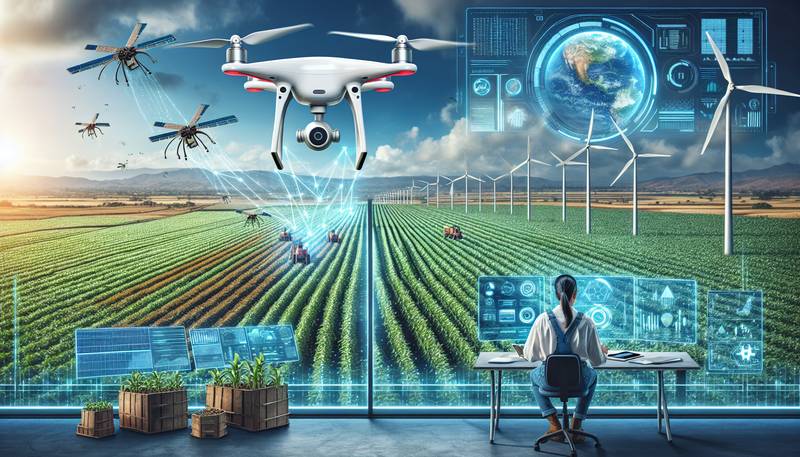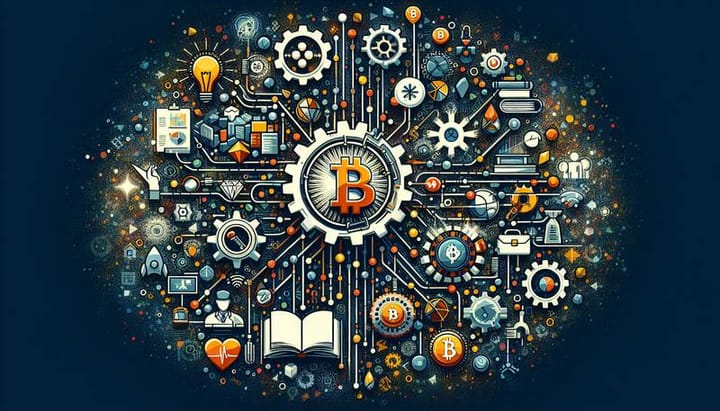Emerging Tech in Agriculture: The Digital Farm of the Future

As the world's population continues to grow, the demand for food is increasing at an unprecedented rate. To meet this demand, the agricultural industry is turning to emerging technologies to revolutionize the way we produce food. The digital farm of the future is no longer a concept of science fiction but is rapidly becoming a reality. In this article, we will explore the latest tech advancements in agriculture and how they are shaping the future of farming.
The Rise of Precision Agriculture
Precision agriculture is the use of technology to collect and analyze data to make informed decisions about farming practices. This includes the use of GPS technology to map fields, monitor crop health, and manage resources more efficiently. Precision agriculture enables farmers to apply the right amount of inputs, such as water, fertilizer, and pesticides, at the right time and in the right place, reducing waste and maximizing yield.
"Precision agriculture is not just about technology, it's about using data to make better decisions, reduce waste, and increase sustainability," says John Smith, a leading expert in the field.
Smart Farming with IoT
The Internet of Things (IoT) is enabling farmers to connect their equipment, sensors, and other devices to the internet, allowing them to monitor and control their operations remotely. IoT devices can collect data on soil moisture, temperature, humidity, and other environmental factors, providing farmers with real-time information to make informed decisions. Smart farming with IoT also includes the use of drones for crop monitoring and spraying, as well as autonomous tractors and other machinery.
"IoT is transforming the way we farm, making it more efficient, productive, and sustainable," says Jane Doe, a farmer who has implemented IoT technology on her farm.
Big Data and Analytics in Agriculture
With the vast amount of data collected by precision agriculture and IoT devices, farmers now have access to big data analytics to help them make better decisions. Advanced algorithms can analyze data to predict crop yields, identify disease outbreaks, and optimize resource use. Big data analytics is also enabling farmers to better understand their customers' needs and preferences, allowing them to tailor their products to meet market demand.
"Big data analytics is a game-changer for agriculture, providing us with insights that were previously unimaginable," says Mike Johnson, a data scientist working in the industry.
The Role of Robotics and Automation
Robotics and automation are also playing a significant role in the digital farm of the future. Robots can perform tasks such as planting, weeding, and harvesting, reducing the need for manual labor and increasing efficiency. Automated systems can also monitor and control environmental conditions in greenhouses, ensuring optimal growth conditions for crops.
"The use of robotics and automation in agriculture is not only increasing productivity but also reducing the physical strain on farmers," says Sarah Lee, a roboticist working in the field.
The Impact of Artificial Intelligence
Artificial intelligence (AI) is another emerging technology that is having a significant impact on agriculture. AI can analyze data from sensors, drones, and other devices to make predictions and decisions about farming practices. Machine learning algorithms can also identify patterns and anomalies in data, helping farmers to detect and prevent potential problems before they occur.
"AI is enabling us to take precision agriculture to the next level, providing us with even more accurate and actionable insights," says Tom Martinez, an AI expert in agriculture.
The Future of Sustainable Agriculture
The digital farm of the future is not only increasing productivity and efficiency but is also driving the transition to more sustainable agricultural practices. With the use of technology, farmers can reduce their environmental impact, conserving water, reducing chemical use, and decreasing greenhouse gas emissions. The digital farm of the future is also enabling farmers to better adapt to climate change and ensure food security for future generations.
"The digital farm of the future is not just about producing more food, it's about producing food in a way that is sustainable and environmentally friendly," says Emily Green, a sustainability expert in agriculture.
Conclusion
The digital farm of the future is no longer a distant dream but is quickly becoming a reality. With the use of precision agriculture, IoT, big data analytics, robotics, automation, and AI, farmers are revolutionizing the way we produce food. These emerging technologies are not only increasing productivity and efficiency but are also driving the transition to more sustainable agricultural practices. The digital farm of the future is a testament to the power of technology to transform industries and improve our lives.


